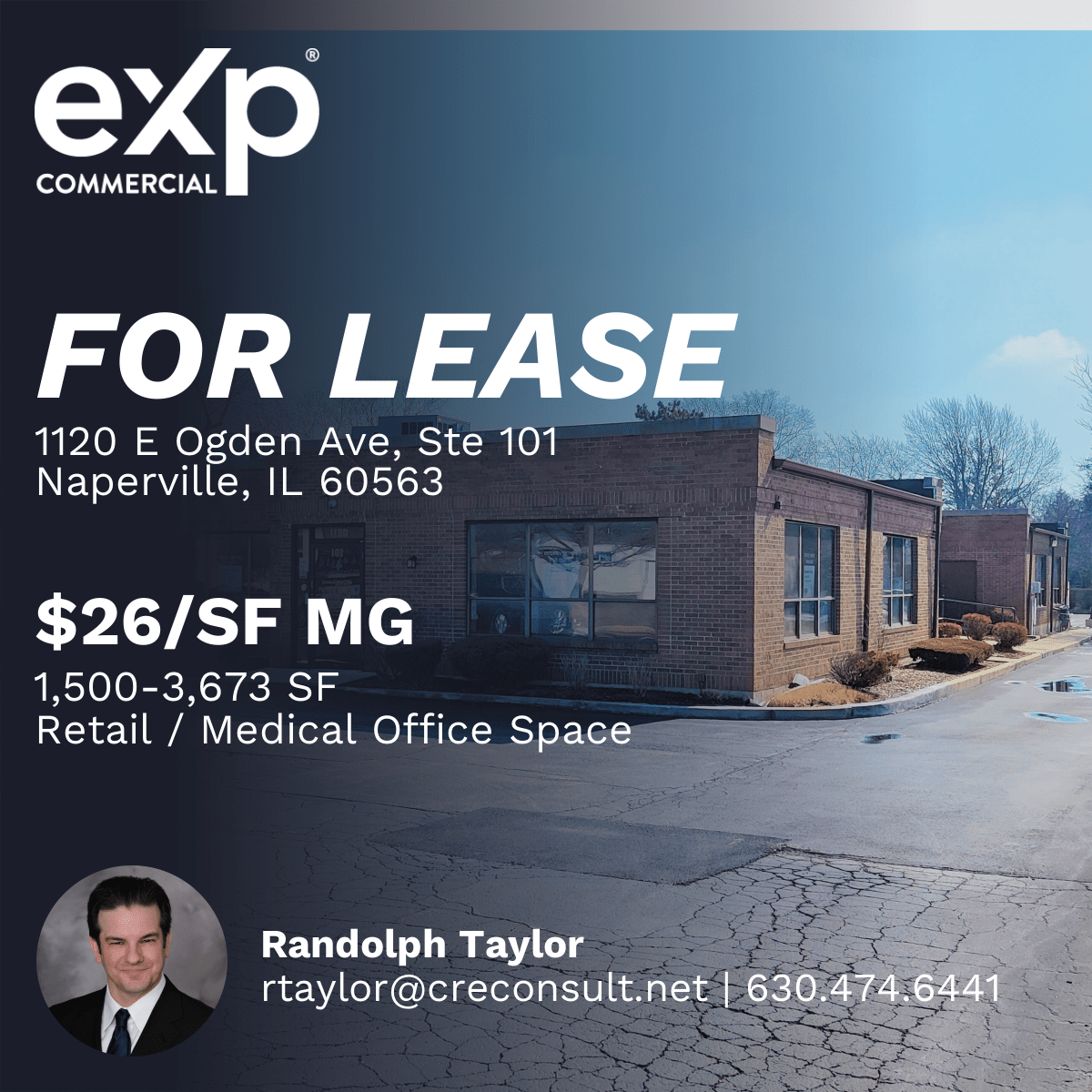
When it’s time to close on a commercial real estate transaction, the process can seem overwhelming. This definitive guide will walk you through every step in the commercial real estate closing process. You will see where the commercial process is similar to the residential process, and where things are different. You will also discover the places you need to be cautious and where your due diligence efforts are most important. Commercial real estate has fewer protections for buyers, but also gives parties more room to be creative with deal making.
There are four major steps to closing a commercial real estate deal. Some of these steps are ongoing and others overlap. Every transaction will go through escrow, signing authority verification, due diligence, and signing and processing title and closing documents.
Escrow
Just like when you purchase a home, escrow is an important part of the commercial real estate closing process. In escrow, a neutral third party will hold funds in an account until either a) all the requirements of the escrow agreement have been met, or b) until one party pulls out of the deal in accordance with the terms of the escrow agreement. Escrow is designed to solve the problem of trust between two parties. Nobody gets paid or receives title to the property until both parties have had their agreed upon conditions met.
Escrow in a Commercial Real Estate Transaction
Most private home sales have an informal escrow process. Because commercial sales often involve larger sums of money and are more complex, escrow in this setting is formal and tightly controlled. Capital for a commercial transaction will typically come from many sources. Additionally, because there is less regulation of commercial real estate deals, the parties must do more due diligence to protect their investments. The paperwork involved is highly customized and more extensive than the form documents used when buying a home.
The parties will often have negotiated an escrow agreement that the escrow agent must verify has been satisfied before releasing any funds.
Title Agents as Escrow Agents
While there is no legal requirement for who the buyer and seller must choose to serve as the escrow agent, usually the title agent will act as escrow agent. Title agents are often already familiar with the details of the transaction and have no financial interest in the success or failure of the deal, as their fee is for services rendered regardless of the outcome of the deal. Title agents also have the expertise to create the customized closing documents vital to most commercial real estate transactions.
Escrow Agreement
Before money can be transferred to the escrow agent, the parties have to come to some agreement as to what the escrow agent’s duties are and what will satisfy escrow and allow the funds to be released to the seller of the property.
Unlike residential sales, the escrow agreement in commercial real estate closings is unique for each deal. However, there are several common escrow agreement provisions, such as:
- Clause appointing the title agent to act as escrow agent and to waive any fee acting as an escrow agent
- Clause ordering escrow agent not to commingle funds sent by the buyer with any other monies.
- Statement of when written instructions from buyer and seller need to be received before funds can be released.
Typically, escrow agents won’t have any responsibility for verification of any part of the deal, apart from only releasing funds when instructed from both the buyer and the seller. Instructions to release the funds are almost always required to be in writing.
Instead of a contract between two people, a commercial real estate deal involves one or more contracts between two or more legal entities. Because these deals are expensive, all parties want to limit their liability and often create legal entities for the sole purpose of owning a piece of commercial real estate. For every entity such as a corporation, LLC, or LLP involved, additional steps must be taken to verify their fitness and ability to conduct the transaction.
Why Legal Entities Are Used
One feature of American law is that investors in a corporation are shielded from loss or liability for the actions of the corporation up to the amount of their investment. In other words, if a corporation gets sued the investors may lose their investment in the corporation, but their personal assets will not on the line. This same protection also extends to LLC’s and LLP’s in most states.
Investors know that commercial real estate can come with large risks. Legal entities are used to protect individual investors from liability both as sellers and buyers.
Even existing legal entities buying additional property will sometimes create a new legal entity or subsidiary, to isolate the risk of acquiring or selling a piece of property.
In many states, there are tax advantages to owning commercial real estate in a legal entity.
Signing Authority Verification
A corporation or other legal entity may be the actual party to a transaction, but a human being will still need to sign and execute documents of the behalf of the entity. This creates an extra layer of paperwork in the commercial real estate closing process.
Both sides will want proof that the person signing on the dotted line has the authority to do so. This is called signing authority. Proof of signing authority can be in the form of a corporate charter that expressly gives the individual such authority, letters of authorization from the president, CEO, or board of directors of the entity, or a resolution from the board of directors or equity partners.
Until documents demonstrating signing authority have been received, a party will not allow the money in escrow to be disbursed. The seller wants to make sure the buyer has the legal authority to commit to the transaction, and the buyer wants to make sure the seller is legally authorized to dispose of the asset.
Making Signing Authority Easy
Before proceeding too deeply into a commercial real estate deal, you should make sure the proof of signing authority will not be an issue for your legal entity. Here are a few ways to set up authority before entering into a transaction:
- Designate someone by name or title in the corporate charter to have the authority to enter commercial real estate transactions.
- Get authorization from the board of directors to execute the purchase or sale of a specific piece of property
- Have a signed and notarized letter from the other partners authorizing the transaction and designating someone to have signing authority on behalf of the entity.
By making sure the authority issue is resolved before the closing process, you will save valuable time.
Lack of RESPA and Due Diligence
The Real Estate Settlement Procedures Act (RESPA) is the main federal law that governs residential home sales. This law requires sellers to make several guarantees and warranties to buyers about the condition of the property and the absence of a variety of environmental defects. RESPA also governs the form of closing documents that can be used. The purpose of the law is to protect homebuyers from being deceived and buying a house that is dangerous or uninhabitable. RESPA does not apply to commercial real estate transactions.
What The Lack of RESPA Means to Commercial Real Estate Closings
The lack of RESPA affects commercial real estate closings in two major ways. One, it means that buyers and sellers must perform detailed due diligence on the property and the other parties to the transaction, which can delay the closing of the deal. Two, the lack of RESPA frees the parties to be more creative in structuring the deal and in the types of closing documents they choose to use.
During a commercial transaction, the buyer is constantly trying to preserve the right to withdraw from the deal as long as possible and the seller is trying to limit the right of the buyer to withdraw. Buyers are looking to add contingencies, and sellers are looking to close all contingencies long before escrow and the closing process. The buyer is also trying to keep the seller on the hook for any problems that become apparent after the sale for as long as possible, while the buyer wants to terminate its liability as close to the closing date as possible. These tensions are reflected in the due diligence process and the form of the closing documents.
Due Diligence
Because there are fewer state and federal protections for buyers and sellers in a commercial real estate transaction, the due diligence process is much more extensive.
Buyers will want to make sure the following areas are in order:
- The contract of sale has been properly executed
- Receipt of most recent title insurance policy
- Updated survey report
- Receipt of true copies of all leases
- Review of new environmental report
- Termination notice conditions and due diligence deadline
- Delivery of all tenant estoppels
- Review of the seller’s books and records
- Confirmation of zoning compliance
- Search for any outstanding tax cases or liens
Sellers will want to make sure the following are in order:
- The contract for sale has been properly executed
- Buyer has delivered down payment to escrow agent
- The escrow agent has deposited the money in a segregated interest bearing account
- Filed a response to any objections to the title and survey report
- Execution of assignment and assumption of leases by buyer
Every transaction is different, and certain deals may require even more steps in the due diligence process than those discussed above.
No RESPA and Commercial Real Estate Closing Documents
In addition to the due diligence procedures discussed above, both parties will want to make sure all the closing documents are reviewed for accuracy and properly executed on time.
In residential real estate transactions, RESPA requires use of a specific form for all closing documents. In the commercial real estate closing process, the parties are free from the RESPA requirements and can draft the closing documents as they see fit. This will often cause some back and forth as the parties negotiate over the exact form the documents will take, but it also gives the parties more flexibility to get a deal done that both sides can live with.
Title and Closing Documents
Before a deal can be completed, the buyer and seller must both agree to accept a title report and execute a series of closing documents. The closing documents may include assignments and assumption of leases, deeds, environmental reports and assignments of liability, zoning disclosures and warranties, and anything else the parties decide is necessary to close the deal.
Commercial Title Issues
Earlier in the process of negotiating the transaction, a title company will be hired to issue a preliminary report of the state of the title to the property. Commercial real estate titles are often much more complicated than residential titles. There are any number of liens and encumbrances such as easements that have to be accounted for. Often the seller may no longer hold some of the below ground rights such as mineral or water rights.
Once the preliminary report has been issued, the buyer must carefully review it and file any objections or concerns to the report under a deadline. If the buyer has any objections, the seller often has a limited period of time to respond to the objections of the buyer can walk away from the transaction.
Once all the issues with the title have been settled, the title company will issue the final report. Both the buyer and the seller will then review this report for errors or concerns, and any issues will have to be resolved before the transaction can move forward.
Zoning/Building Jackets
Buyers will want reassurances that the property is correctly zoned for its current use and for the buyer’s intended use. As part of the closing documents, the parties will want a report that proves a zoning and building jacket search have been conducted and that there are no known zoning issues. Depending on the jurisdiction, this report may include letters from the local municipalities, endorsements to the title of the property, or a detailed report from the title company.
Environmental Reports
Because liability for environmental problems can be so severe, the parties will usually require a separate report and document to deal with the current understanding of environmental issues, such as a known wetland or known ground or water pollution. The buyer will want some statement from the seller stating the property is otherwise free from issues, and the seller will want to try to avoid making such a statement. A document detailing the final agreement of the parties as to both the nature of any environmental issues and future liability for later discovered issues will be part of most commercial real estate closings.
Deeds
Like in residential transactions, part of the closing documents will be some form of deed, typically a quitclaim deed, but sometimes a special warranty deed is used. This document once recorded officially transfers ownership of the property from buyer to seller. A title affidavit will also accompany the executed deed.
Federal laws, such as the Patriot Act, also require that a non-foreign entity affidavit be executed with the deed.
The title and the terms of the deed will have been reviewed and discussed long before the formal closing documents are executed.
Assignment and Assumption of Leases
Unlike in a residential transaction, a commercial real estate closing will include an assignment and assumption of leases. This document explains that the benefits of any lease transfers from the seller to the buyer. It also transfers future liability for breaches of the lease from seller to buyer, and details responsibility for lease breaches prior to the sale. This document also notifies tenants of the change in ownership.
Conclusion
The commercial real estate closing process is more involved and complicated than the residential real estate closing process. Because there is less federal regulation of the process, the parties have greater freedom to structure the deal and the closing documents, but both sides also must exert greater due diligence. Because of the large amounts of money involved and a variety of sources of capital, escrow is more formal and both sides of the transaction are usually legal entities. The closing process takes longer in commercial real estate deals, but there are more tools to resolve issues than in residential purchases. This article gave a broad overview of the commercial real estate closing process, but as always, it’s best to consult a competent real estate attorney to discuss your particular situation.
Source: Commercial Real Estate Closing Process: The Definitive Guide
https://www.creconsult.net/market-trends/commercial-real-estate-closing-process-the-definitive-guide/



